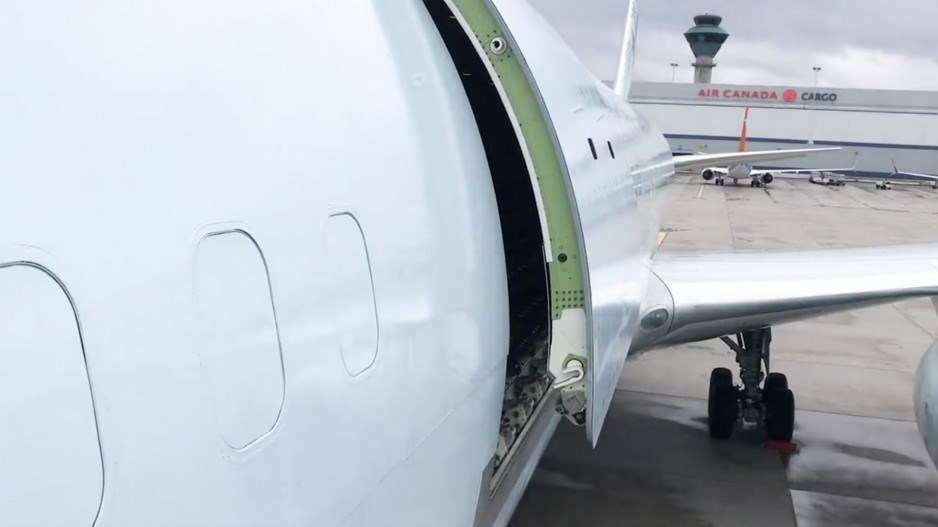Air Canada's first dedicated Boeing 767-300ER freighter aircraft was put into service for the first time today, with the airline flying it to Vancouver from Toronto.
The new plane has 58 tonnes of capacity. Other Air Canada cargo planes, such as the 777-300ER, are listed on the airline's website as being able to carry 24 tonnes
Air Canada had originally intended to first fly the freighter to Frankfurt, Germany, but it changed those plans when Metro Vancouver's demand for cargo surged after the region was hard hit by wild weather that has knocked out highway operations.
Only essential traffic is allowed to travel on Highway 3, between Hope and Princeton, and on Highway 99 between Pemberton and Lillooet. Those corridors are the only ones that connect Metro Vancouver to the rest of Canada. The faster and previously far more used Coquihalla Highway is expected to be out of service for even essential service until January at the earliest.
"Our first freighter is being deployed earlier than initially planned in order to provide additional cargo capacity needed into and out of Vancouver to meet ongoing demand as a result of the flooding that disrupted British Columbia's transportation network," said Jason Berry, Vice President, Cargo, at Air Canada.
"The freighter is planned to operate 12 trips between our Toronto and Vancouver cargo hubs. Our teams have also worked extremely hard over the last several days to get our freighter into service early to aid in the transport of goods to Vancouver."
Prior to using the freighter, the airline had increased cargo capacity by 586 tonnes into Vancouver from Toronto, Montreal and Calgary by increasing flight frequency, and by flying passengers in larger planes with more cargo space. That tonnage was a 45% increase over its normal cargo volume in and out of Vancouver, the company said.




